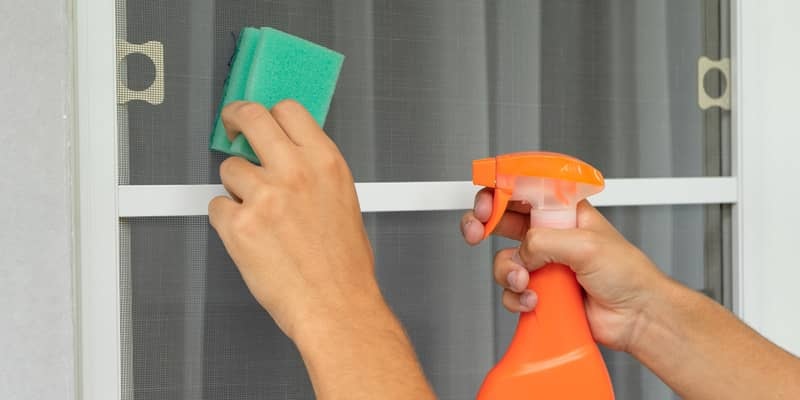Fly screens are an absolute must-have for every home. They serve the dual purpose of keeping annoying insects at bay while allowing fresh air to flow freely throughout your living spaces.
However, just like any other part of your home, fly screens need regular maintenance and cleaning to ensure they perform optimally and last long.
In this article, we will share some valuable tips on how to keep your fly screen in excellent shape.
Regular Dusting
Over time, any fly screen tends to gather dust, pollen, and other debris. It’s important to dust them off regularly to prevent any build-up.
You can use a soft brush or a vacuum cleaner with a brush attachment to gently remove the dust from the screen mesh.
Don’t forget to pay attention to both sides of the screen for a thorough cleaning.
Gentle Cleaning Solution
For more stubborn dirt or stains, you can prepare a gentle cleaning solution using warm water and mild dish soap.
It’s best to avoid using harsh chemicals or abrasive cleaners as they can harm the screen material.
Dip a soft cloth or sponge into the solution and gently wipe down the screen, focusing on areas that require cleaning.
Rinse with clean water and let the screen air dry completely before reinstalling.
Avoid Pressure Washing
Although pressure washing may seem like an effective way to clean fly screen, it can actually cause damage.
The high-pressure water can tear or stretch the screen mesh, compromising its effectiveness.
It’s better to stick to gentle hand cleaning methods to ensure your fly screen lasts longer.
Check for Damages
Regularly inspect your fly screen for any damages or tears.
Over time, screens can develop small holes or tears that allow insects to enter your home.
If you notice any damage, it’s important to promptly repair or replace the affected area.
Minor holes can be patched using adhesive patches specifically designed for screens, while larger damages might require professional repair or replacement.
Lubricate Moving Parts
If your fly screen has moving parts like sliding tracks or hinges, it’s a good idea to lubricate them periodically.
Use a silicone-based lubricant or a specialized screen lubricant to keep the mechanisms running smoothly.
This will prevent rusting, ensure easy operation, and extend the lifespan of your fly screen.
Trim Vegetation
Overgrown trees or shrubs near your fly screen can cause damage and increase the likelihood of debris accumulation.
Trim back any vegetation that is in close proximity to the screens to prevent leaves, branches, or other debris from getting caught in the mesh or frames.
Store Screens Properly
If you have removable fly screen that are not in use during certain seasons, make sure to store them properly.
Clean and dry the screens thoroughly before storing them in a clean, dry area like a garage or basement.
Avoid placing heavy objects on top of the screens to prevent bending or warping.
Conclusion
By following these maintenance and cleaning tips, you can keep your fly screen in excellent condition and ensure they continue to serve their purpose effectively.
Regular cleaning and prompt repairs will not only extend the lifespan of your screens but also contribute to a cleaner and healthier living environment.




